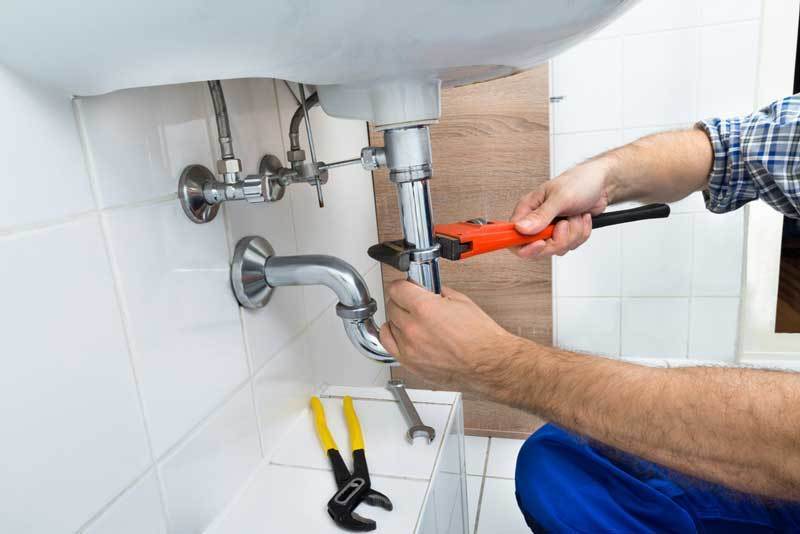Hiring a good contractor is important if you want to make minor cosmetic changes to your home or have a large remodeling project in mind. But how do you know what to look for in the first place? What makes a contractor dependable? This guide will assist you in identifying the characteristics of a good contractor.
Where Do You Look for Home Improvement Contractors?
Request reviews from your neighbors, acquaintances, and relatives. If they’ve hired someone to do a home improvement project before, they’ll be able to tell you if they were happy with the job and what you should expect from them. In certain cases, they will even give you advice on who not to recruit.
If you don’t have any suggestions from your network, look for candidates online. Thumbtack and Angie’s List are two platforms that can provide you with knowledge about a contractor’s history, licensing, previous projects, and customer satisfaction.
Let yourself some options so you can compare project deals and take advantage of lower bids. A group of three contractors is a good place to start.
Checklist for Contractor Credentials
Prepare some interview questions once you’ve compiled a list of contractors so you can learn more about each one and why you can trust them with your house. For instance, you might inquire:
- Do you have a valid license? A license ensures that the contractor is familiar with the required codes and procedures to work on your home safely and efficiently. Make a note of your contractor’s license number and look it up on the license board in your state.
- Are you bonded and covered by insurance? Your contractor’s insurance and bonding status can be found on the Better Business Bureau website. You may also request a copy of their liability insurance certificate (this document is readily available to insureds). If the contractor fails to complete the job, you will file a lawsuit against their insurance to be reimbursed for your damages.
- What kind of job do you mostly do? A contractor may specialize in a variety of trades, including electrical work, carpentry, roofing, and landscaping. Check to see if the contractor you’re considering has the experience you’ll need for your project.
- Is it possible for you to have a list of past clients? A trustworthy contractor would usually gladly provide references.
- What city do you call home? Look for a local contractor because their links to the community can indicate that they are concerned about their credibility. For proof of their location, ask for their business address.
Questions to Ask Your Contractor About Your Project
You should ask logistical questions about the project in addition to questions about their professional experience, licensing, insurance, and skills. Consider the following scenario:
- Do you accept projects of this magnitude? Since certain contractors only have one or two employees, they might not be able to handle a large project. Some contractors, on the other hand, may be more involved in large remodels than minor repairs.
- If you have any examples of related completed work? Whether it’s a complete kitchen remodel, an underground pool building, or a new patio deck, most experienced builders are proud to show evidence of previous ventures.
- How many other programs will you be working on concurrently? This will show you if they will be attentive to your needs and stick to the project schedule.
- Are your subcontractors covered by insurance? All involved in the project should be covered by insurance to protect you from financial liability if they perform subpar or unfinished work.
- Are you able to receive permits? Contractors may choose not to obtain permits for smaller projects, but obtaining one means that they will be able to follow local building codes. It’s crucial for both their protection and your own.
What Does a Home Improvement Contract Contain?
It’s time to check the contract once you’ve decided on a contractor. In most cases, a technical project contract may have the following clauses:
- Name, address, phone number, and license number of the contractor.
- To ensure that the project is completed on time, an approximate start and completion date should be given.
- To ensure accountability, the payment schedule has been created.
- Obligation to obtain licenses in order to comply with the law.
- What happens if you plan to alter the project’s scope of work?
- Materials and allowances should be planned ahead of time to avoid unexpected costs.
- Guarantees that safeguard your interests.
- Cleanup clauses are included so you know what to expect once the project is completed.
- If the contractor breaks the contract’s terms, you have the right to end the partnership.
If you’re concerned about not being able to pay on time, make sure your contract includes a payment plan. Otherwise, the contractor and their subcontractors could be able to file a lien, or real estate debt, against you.
Contractor Warning Signs
Scammers in the home improvement industry are common, which is why it’s important to check references. No one wants work done by a novice or a fly-by-night company. To stop a possible scam, follow the tips above and keep an eye out for the following red flags:
- They have bad reviews or sources that are out of date.
- They take a long time to answer.
- They demand an excessive amount of money up front.
- They expect you to obtain the required building permits.
- They don’t have evidence of bonding or insurance.
- Their bond and/or insurance are no longer valid.
- They become irritated, interrupt you, or refuse to listen to you.
Choosing the right contractor will make a big difference in whether your home improvement project goes smoothly or not. When in doubt, do your due diligence and analysis, but also trust your gut. Finally, you must trust the person you recruit, and there is no one-size-fits-all solution.
Also, keep in mind that when you upgrade your house, you will need to double-check that your home insurance is still sufficient to protect your investment. Plus, if your upgrades make your home safer (say, a new roof with hurricane clips or wind mitigation system), you may even qualify for premium discounts. Talk to your insurer for details.

